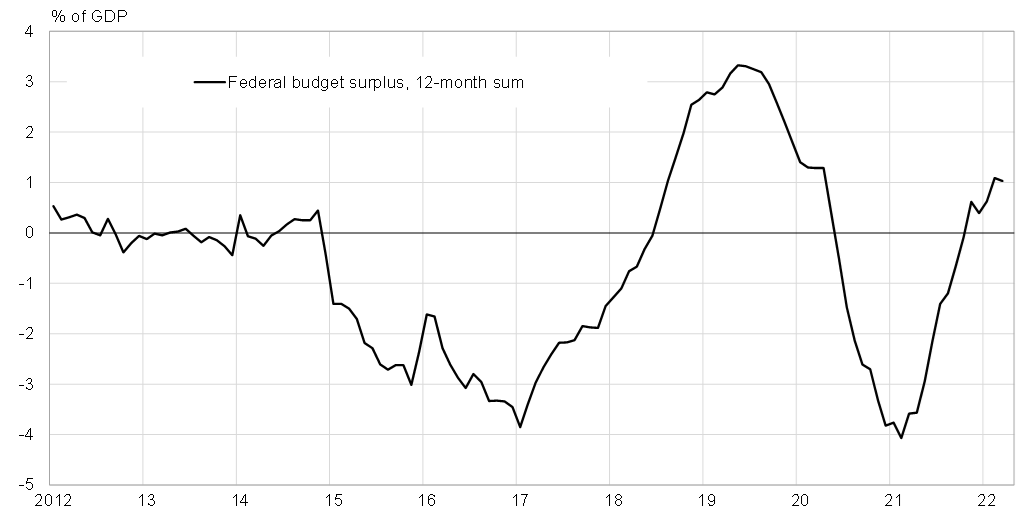BOFIT Weekly Review 17/2022
Russian federal budget revenues and expenditures rise; inflation undermines purchasing power
Nominal revenues to the federal budget were up by 35 % y-o-y in the first quarter, and were still up by 17 % y-o-y in March. Due to the spike in inflation, however, revenues were down in real terms in March as consumer prices rose by 17 % y-o-y and industrial producer prices were up by 27 %.
The rise in nominal revenues was largely driven by higher revenues from oil & gas taxes. These revenues, which are mostly denominated in dollars, increased in the first quarter by over 80 % y-o-y. In March, growth was over 100 % due to the soaring price for Urals oil and the dollar’s appreciation against the ruble (both up by about 40 % y-o-y). The increase in the Urals oil price in rubles was up by nearly 100 %. The coming months look less favourable to government revenues, however, as the price of Urals crude is currently down and the ruble has strengthened back to pre-invasion levels. Tax revenues from oil & gas accounted for over 40 % of federal budget revenues in the first quarter.
Other budget revenues, which were up by 14 % y-o-y in the first quarter, fell in March. The drop had yet to reflect the economic downturn, as revenues from value-added taxes, excise taxes and corporate profit taxes were up strongly in March. VAT revenues accounted for nearly 40 % of federal budget revenues in the first quarter. Revenues from some of the government’s other budget revenue streams fell sharply.
Nominal federal budget expenditures were up by 20 % y-o-y in the first quarter. The March increase was nearly 30 %. Military spending was raised by 17 % in the first quarter, with a similar pace each month. Spending on domestic security and law enforcement rose slowly. After a sharp decline in 2021, spending on television and radio broadcasting recovered to levels near their 2020 peak.
Growth in the federal budget surplus has stabilised this year. The 12-month surplus in March amounted to about 1 % of GDP.
Finance minister Siluanov said that for the time being additional budgetary support this year will be on the order of roughly 2 % of GDP. According to Siluanov, the figure includes supplementary budget spending, investments in the economy funded from the National Welfare Fund and postponed tax payments (e.g. corporate profit tax payments). President Vladimir Putin this week proposed granting a one-year postponement of the mandatory social contributions of employers for firms operating in most branches.
Growth of Russia’s federal budget surplus slowed this year

Sources: Russian finance ministry and BOFIT.